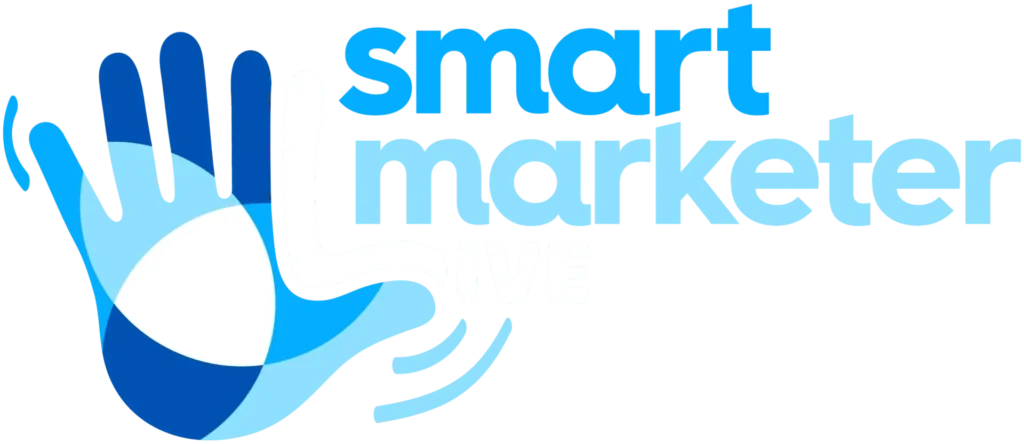“Never hire friends.” “Never work with family.”
Not in my experience. These are true only if you are unwilling to communicate. I have found that building a team from my friends and family has been both pleasurable and successful.
I hire my friends and family because:
- I prefer working with people whom I care about and with whom I have past experiences
- I find they will challenge me and question my point of view
But in order to do this, you must:
- Invest in them
- Be clear about what their role is
- Make sure they are incentivized
- Give them autonomy within their role
And this goes for anyone on your team, friend or not. It doesn’t matter who you work with, it matters how you work with them.
Video Highlights:
0:18 Never hire friends or family? Only if you’re unwilling to communicate
0:37 A lot more is at stake, and that’s a good thing
0:55 You have to give people a way win by providing clarification
1:45 Your work life is likely integrated with the rest of you life.
2:20 Your help is only as good as you are at investing in them
3:00 It’s most important that people are enthusiastic and willing to learn
3:35 When you first start to scale, people will have swings roles
4:35 Want to get past $200,000-$300,00 a year? You need more people
5:00 Make sure your team is incentivized
5:20 Your friends and family will challenge you, and that’s a good thing
6:00 Give you team members autonomy within their roles
7:35 It doesn’t matter who you work with, it matters how you work with them
Click Here For Video Transcript
Ezra: Never hire a friend. Never work with your family. I hear this all the time. And it could not be further from my experience.
Carrie: Or mine.
Ezra: I think that, never hire a friend and never work with your family if you’re unwilling to communicate. You’re going to spend a lot of time working, it’s quite likely that you’ll spend a lot of time working. And wouldn’t you rather, I know I would rather and I know you would rather, spend your time working with people who you love and who you care about and who you have past experience with.
Carrie: A lot more is at stake when you are working with your friends or family, because you generally care more about those relationships that you care about the relationships people you don’t actually know that well.
Ezra: Which is actually a good thing, because it forces you to be more deliberate about your communication.
All people want is a way to win. People want to feel like they can win. So, if you’re going to hire or work with anyone, you’ve got to give them a way to win and the easiest way to do that is to give them clarification on what their role is, and what you want them to be doing. When you want them to be doing it.
Carrie: It’s very hard to win at something if you don’t know the rules of the game.
Ezra: So what we’ve done, and we run multiple 7-figure businesses and one that’s looking like it could be an 8-figure business in 2016, what we’ve done is we’ve hired all our best friends and family, basically. My cousins, your best friend, our best friends’ best friends. We’ve gone the route of building this team around us of people we know and love. And it’s been so amazing because it gives us excuses to relate with people who are already in our circle of friends.
Carrie: Also, as an entrepreneur, your work life does not end at 5pm and then you go home. It’s very integrated into the rest of your life. Or, at least, our work life is very integrated into the rest of our lives. So for us, it made a whole lot of sense to hire our friends and family because we like talking to them. We want them to be a big part of our lives, and our work is a big part of our lives, and they are not a part of that.
Ezra: Absolutely. And a lot of people tell me, because we have the opportunity to relate with 1000s of entrepreneurs each year through our coaching and our courses, and sometimes people will report that they hired help, or they bought help, and that it wasn’t any good. Their virtual assistant was no good. But the truth of the matter is, your help is as good as you are in investing in them, and telling them what they should do and bringing them up.
So what we do, is each person we bring on is not necessarily in the digital marketing or ecommerce world. Most of them have never done something like this before. But we invest in them. We spend time and energy and effort bringing them up, educating them, giving them training courses. We invest in our people.
Carrie: Yes, we do. And in this industry, things are changing very quickly. So we’ve found that it’s less important that somebody come in knowing a certain set of skills, and more important that they have the ability to learn and willingness to try different things.
Ezra: And enthusiasm! A desire to do well and put in energy and effort into it.
Carrie: Our hiring criteria is more about the how than the what.
Ezra: That’s right. Because you can train someone. And likely, what is going to happen when you buy your first help, you the entrepreneur the business owner who is watching this who has an organization you are looking to scale, that person is going to do a lot. That first person you are going to bring on, you may not have a team of 10 or 15 or whatever, so that first person is going to play a swing role and do a lot of different things.
Carrie: Yeah. And they will probably do those roles for a while, and as you get to know them and you find out what their fortes are, they will probably move into a more specialized role and you’ll find a new person to play that swing role. People aren’t generally going to stay in the same job for years at a time. Maybe not even months at a time.
Ezra: What we’ve found is that if you’re a single operator, if you are a entrepreneur or business owner but you’re a do-it-yourself entrepreneur business owner who does all the operations, you probably aren’t going to get past building a $200,000-$300,000 a year business. That’s probably where you’ll max out and fizzle. And if you’re willing to add more people, and build a team around you who you communicate with and who work on your projects with you. Then you can scale further from there. 2 people can break a million and it just goes on from there, in our experience.
One of the keys to buying help or building a team or doing something with a group of people, is to ensure that they are incentivized. That when you do well, they do well. And I find that a lot of times, people don’t want to give up control. They don’t want anyone to come in because they don’t want people to challenge them. One of the beautiful things about hiring friends and family is that they will challenge you. They will say, Hey just because you’re the boss and you’re in charge doesn’t mean you’re right. You’ve got a back relationship.
Carrie: You want people on your team who are going to actually share what they think about something, and point out your blindspots.
Ezra: Not just yes-people.
Carrie: In our experience, hiring people who we know and who we already trust, has made that level of relationship kind of built in as opposed to having to grow to that over time.
Ezra: And we set that expectation up front, that’s another thing. The framing is very important. How you frame it. So we tell everyone look, express how you feel. If you feel something, that’s a valid thought. Let us know and we’ll have a conversation about it. People should feel comfortable expressing themselves, and feel like they have autonomy within their role. Nobody likes to feel micro-managed.
This is a conversation that is on the table right now, because it’s the holidays and it’s hiring season. Things get crazy in online business during the holidays, so there are a lot of conversations about who should I hire, how should I hire them, how should I get help. And we’ve had just an amazing time over the last few years, building a team—we’re 20+ now and we’re all virtual and it’s going really well. And hiring friends and family has really worked out for us.
Carrie: And you can also hire people who are not friends and family. Our entire team is not friends and family. But most of them are.
Ezra: We have people overseas, scaled help. We do. Point being, that this is not the right way to do it. We’re not saying this is any better than any other way.
Carrie: What we are saying is that, a lot of people will say that this is the wrong way, and we have not found this to be the wrong way.
Ezra: We have not. We have found this to be unbelievably pleasurable. What it comes down to is, it doesn’t matter who you work with, it matters how you work with them. What expectations you set of them. How much you invest them. What the infrastructure for your communication is. Do you have a communication platform like Slack?
Carrie: It matters who this person is, and how you feel in relation to them and how they feel in relation to you. It matters that you have a good working relationship with them. And if you hire somebody you already know, at least you already know that you get a long. And not everybody you know is going to be a good fit to work with you.
Ezra: Right. That is very true. You have to be deliberate about who you bring on. Some people are not team players, and want to do their own thing. So have to know who you’re dealing with.
Carrie: So you can’t hire somebody who you know is not going to be okay not being in charge.
Ezra: Right. So alright. Ezra Firestone. Carrie Firestone. Some people would say we should not be working together.
Carrie: It’s worked out so far.
Ezra: Thank you for watching. We’ll catch you in the next one.



